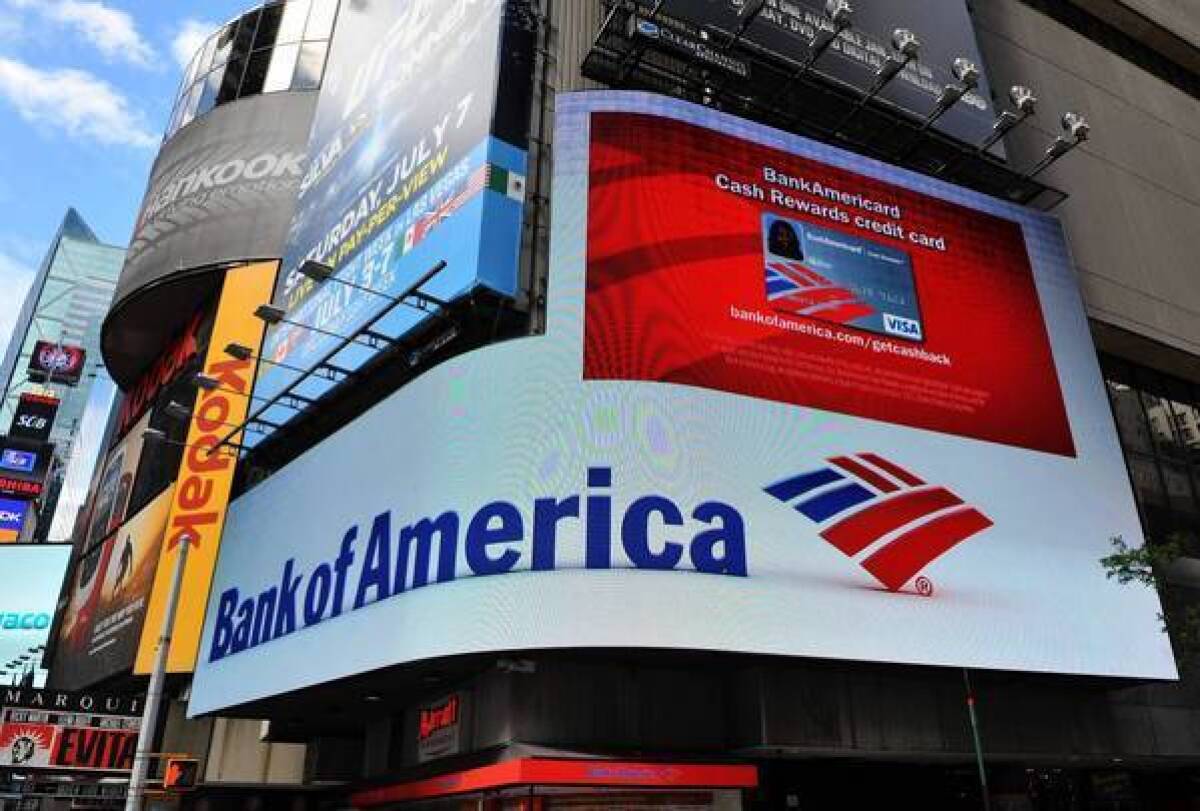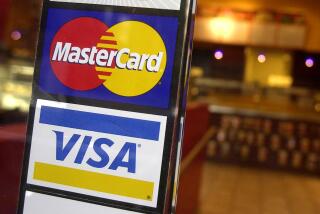Bank of America should just play the tape of disputed sales call

It’s perhaps not so surprising that a Bank of America customer discovered recurring payments on his credit card bill for a service he swears he never signed up for. This kind of thing happens a lot.
What is surprising is that BofA told the customer to pound sand when he requested proof that he authorized the bank by phone to enroll him in its Credit Protection Plus program, which came with a $212.50 monthly charge.
BofA’s stance: Trust us, we’re right. We have nothing to prove.
This didn’t sit well with Craig Chatfelter, 60, of Lake Hughes after he realized he’d paid more than $4,000 in Credit Protection Plus charges over 19 months — and, yes, he blames himself in part for not having kept closer tabs on his card statements.
“When you phone Bank of America, they say they record all calls,” he told me. “OK, so play me the tape. Show me the proof that I really signed up for this.
“I’d never sign up for anything like this,” Chatfelter insisted. “Never in a million years. I’m self-employed. I don’t sign up for anything that comes with extra fees.”
Betty Riess, a BofA spokeswoman, acknowledged that “this is not the type of experience we want customers to have.”
However, she was less forthcoming when it came to addressing Chatfelter’s reasonable request for proof of his enrollment in the bank’s program. More on that in a moment.
Chatfelter, who works as a real estate appraiser, remembers being pitched by the bank for Credit Protection Plus, which can cancel up to 18 monthly credit card payments if you lose your job or are hospitalized.
“They had contacted me because there was an unauthorized payment on my account,” he said. “They had me change my card number, which I did.”
During the same call, a BofA service rep asked if Chatfelter wanted to sign up for credit protection. He said he declined the offer.
Months passed. It wasn’t until last March that Chatfelter noticed the $212.50 charge on his bill. He accepts that he should have spotted it sooner, but said that, like many people, he seldom looked closely at his statement.
Whatever the case, once Chatfelter realized that he’d paid $4,037.50 for the unwanted service, he contacted the bank and canceled his membership in the program. Then he asked for a refund.
A service rep promptly offered to give back six months’ worth of payments, or $1,275, which the bank did. The remainder would depend on the outcome of an investigation by the bank.
In April, Chatfelter was informed that “the records maintained by Bank of America indicate that you enrolled for this protection during a customer service call on Sept. 3, 2010.”
The bank’s records also indicated that Chatfelter was mailed a “welcome package” spelling out the details of the plan.
He wasn’t impressed. Chatfelter contacted the bank again to reiterate that he’d never agreed to enroll in the program and that he didn’t recall any “welcome package.” He once again asked for all his money to be refunded.
In June, BofA sent a letter stating that its records indicated that Chatfelter enrolled in the credit-protection program on Sept. 6, 2010 — three days later than the bank stated in its prior correspondence.
The bank said that it had refunded $1,275 as “a one-time goodwill courtesy” and that “this adjustment is not to be construed at any time or for any purpose as an admission of liability on our part.”
“We consider this matter settled,” BofA said in its letter to Chatfelter.
For many people, that would have been the end of things. But Chatfelter stuck to his guns. He once again told the bank he believed he never enrolled in Credit Protection Plus. If he had, he said, let him see the evidence.
In September, the bank sent Chatfelter a letter repeating its earlier assertions. “This is our final correspondence regarding this matter,” BofA said.
I think Chatfelter can consider himself lucky to have received anything after allowing the charges to go unnoticed for more than a year and a half, but he does seem within his rights to ask the bank to put up or shut up.
If BofA is confident that its records show Chatfelter signed up for the program, let him see them. Play him the tape where he can be heard agreeing to join Credit Protection Plus. Case closed, right there.
Failure to do so on BofA’s part suggests that its records won’t stand up to scrutiny, and that alone should vindicate Chatfelter.
BofA’s Riess said the bank stopped offering Credit Protection Plus last year “as part of a broader strategy to simplify our business.”
I asked why BofA never just put things to rest with Chatfelter by playing him the tape of its sales call.
“We’re not going to dwell on past practices,” Riess answered. And that’s all she’d say on the subject.
If banks want to continue making phone solicitations, the only fair way of doing it is to follow up the sales call with a mailed contract. The customer would have to sign and return the relevant forms before enrollment would be considered complete.
I’m surprised no lawmaker has addressed this. It seems like an easy fix for an all-too-common problem.
Otherwise we’ll keep seeing these disputes, and banks will keep insisting that customers should just trust them.
Is there anyone who’s comfortable with that arrangement?
David Lazarus’ column runs Tuesdays and Fridays. He also can be seen daily on KTLA-TV Channel 5 and followed on Twitter @Davidlaz. Send your tips or feedback to david.lazarus@latimes.com.







